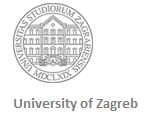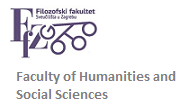Course title: Introduction to the Linguistic Study of English
Course coordinator: Prof. Milena Žic Fuchs
Instructors: Asst. Prof. Mateusz-Milan Stanojević, Marina Grubišić
ECTS credits: 6
Language: English
Semester: 1st (winter)
Status: Compulsory
Form of Instruction: 4 lectures per week
Prerequisites: none
Examination: Written
Course contents: This elementary course covers the basic topics in general linguistics and selected issues in the linguistic description of the English language. Language is defined on the basis of its unique properties, and the foundations of the structuralist description of language are dealt with, including synchrony and diachrony, prescriptivism and descriptivism, language and speech, the linguistic sign and its properties, double articulation and syntagmatic and paradigmatic relations. The central part of the course deals with core linguistic disciplines: phonology, morphology, syntax, semantics, pragmatics. They are described synchronically, and the description includes theoretical issues with English examples. The description is based on a range of theories, including structuralism, generative linguistics (in syntax) and functionalism (in semantics and pragmatics). The last topic in this part of the course is the history of the language, which explains historical changes on all levels of linguistic analysis, with examples based on the history of English. The last part of the course tackles multidisciplinary approaches to language, describing ways in which contemporary linguistics sees the relationship between language and society (sociolinguistics), language and culture (anthropological linguistics), language and mind (psycholinguistics) and, finally, language acquisition and teaching.
Objectives: The objectives of this course are threefold. Firstly, students will acquire basic theoretical competences. Secondly, students will become familiar with the synchronic and diachronic descriptions of English given by various theories. This will serve as the basis for other linguistic courses in the program, and will enable the students to compare and contrast the approaches. Finally, the compulsory and extra-credit assignments will enable students to acquire some basic linguistic research skills, which will prepare them to do more detailed linguistic research in other specialized linguistic courses.
| Week | Topic |
| 1 | Introduction |
| Introduction | |
| 2 | Articulatory phonetics |
| The sounds of English | |
| 3 | Suprasegmentals. Acoustic and auditory phonetics. |
| The sound pattern of a language. | |
| 4 | Constructing words in a language |
| Morphological operations. Derivation and inflection | |
| 5 | Derivation and inflection |
| Combining units: phrases and sentences | |
| 6 | Syntax I |
| Syntax I (cont.) | |
| 7 | Syntax II |
| Revision. | |
| 8 | Semantics |
| Semantics (cont.) | |
| 9 | Pragmatics |
| Pragmatics. Discourse analysis. | |
| 10 | Revision, bringing it all together. Human language and communication, unique properties of language |
| Language theories: basic tenets of structuralism. | |
| 11 | Language history and language variation: diachronic linguistics. |
| Language history and language variation (cont.) | |
| 12 | Diachronic linguistic research: exercises |
| Revision. Study questions | |
| 13 | Language variation: sociolinguistics |
| Language and mind; language and culture. | |
| 14 | First and second language, psycholinguistics. |
| Linguistic research and applied linguistics | |
| 15 | Study questions. |
| Revision. |
Required reading:
– Yule, George (2006). The Study of Language. 3rd ed. Cambridge University Press
Additional reading:
– Fasold, Ralph W., and Connor-Linton, Jeff (eds.) (2006). An Introduction to Language and Linguistics. Cambridge University Press
– Josipović, Višnja (1999). Phonetics and Phonology for Students of English. Zagreb: Targa
– Lyons, John (1981). Language and Linguistics. An Introduction. Cambridge University Press



